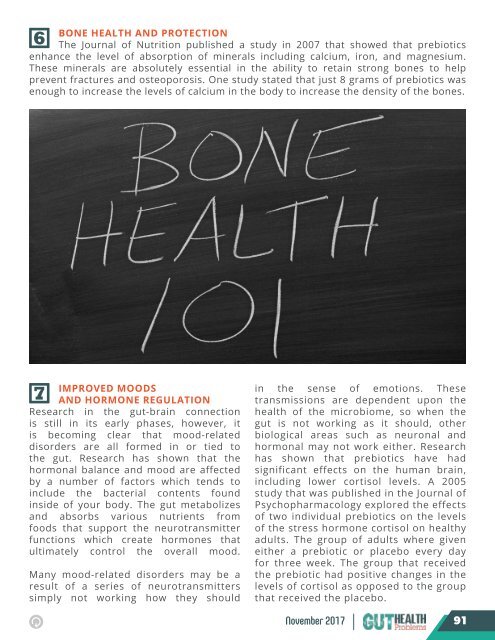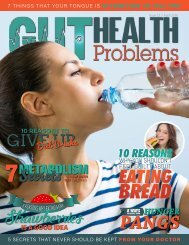Gut Health Problems - November 2017
In the tenth issue of Gut Health Problems, we have sneaky ways to introduce healthy choices into your kid's diet, myths and facts about celiac disease, colon cancer, tips to make every stool easier, and more. Thanksgiving and the bulk of the holidays are right around the corner, making this an exciting time to be with family, enjoy great food and warm sentiments. Unfortunately for many, gut distress and digestion problems often accompany this season. At Gut Health Problems, we're here to change that.
In the tenth issue of Gut Health Problems, we have sneaky ways to introduce healthy choices into your kid's diet, myths and facts about celiac disease, colon cancer, tips to make every stool easier, and more. Thanksgiving and the bulk of the holidays are right around the corner, making this an exciting time to be with family, enjoy great food and warm sentiments. Unfortunately for many, gut distress and digestion problems often accompany this season. At Gut Health Problems, we're here to change that.
You also want an ePaper? Increase the reach of your titles
YUMPU automatically turns print PDFs into web optimized ePapers that Google loves.
6<br />
BONE HEALTH AND PROTECTION<br />
The Journal of Nutrition published a study in 2007 that showed that prebiotics<br />
enhance the level of absorption of minerals including calcium, iron, and magnesium.<br />
These minerals are absolutely essential in the ability to retain strong bones to help<br />
prevent fractures and osteoporosis. One study stated that just 8 grams of prebiotics was<br />
enough to increase the levels of calcium in the body to increase the density of the bones.<br />
7<br />
IMPROVED MOODS<br />
AND HORMONE REGULATION<br />
Research in the gut-brain connection<br />
is still in its early phases, however, it<br />
is becoming clear that mood-related<br />
disorders are all formed in or tied to<br />
the gut. Research has shown that the<br />
hormonal balance and mood are affected<br />
by a number of factors which tends to<br />
include the bacterial contents found<br />
inside of your body. The gut metabolizes<br />
and absorbs various nutrients from<br />
foods that support the neurotransmitter<br />
functions which create hormones that<br />
ultimately control the overall mood.<br />
Many mood-related disorders may be a<br />
result of a series of neurotransmitters<br />
simply not working how they should<br />
in the sense of emotions. These<br />
transmissions are dependent upon the<br />
health of the microbiome, so when the<br />
gut is not working as it should, other<br />
biological areas such as neuronal and<br />
hormonal may not work either. Research<br />
has shown that prebiotics have had<br />
significant effects on the human brain,<br />
including lower cortisol levels. A 2005<br />
study that was published in the Journal of<br />
Psychopharmacology explored the effects<br />
of two individual prebiotics on the levels<br />
of the stress hormone cortisol on healthy<br />
adults. The group of adults where given<br />
either a prebiotic or placebo every day<br />
for three week. The group that received<br />
the prebiotic had positive changes in the<br />
levels of cortisol as opposed to the group<br />
that received the placebo.<br />
<strong>November</strong> <strong>2017</strong> 91

















